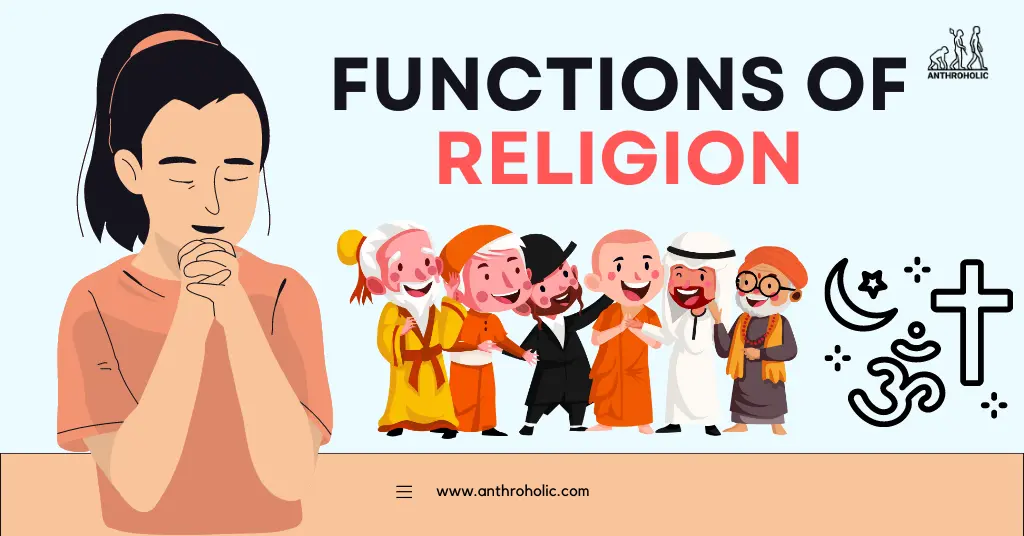AI Answer Evaluation Platform Live Now. Try Free Answer Evaluation Now
Functions of Religion
Religion, as a potent social force, forms the bedrock of many societies, often guiding individual behavior and shaping cultural norms. It serves multiple purposes, including making sense of the world, providing emotional solace, cementing societal bonds, and maintaining order. Each function offers unique insights into human societies and their religious institutions.

Explains the Unknown
Religions emerged in part as human attempts to explain the inexplicable [1]. From the genesis of the universe to natural phenomena and human life, religions provide answers that science may not yet offer.
- Creation Myths: Almost every religion has a unique creation story. For instance, Hindu mythology presents a cyclical universe creation model, while Abrahamic religions adhere to a linear creation concept [2].
- Life and Death: Religions often explicate the enigma of life and death, offering comforting notions of an afterlife or reincarnation [3].
- Natural Phenomena: Religions traditionally explained natural events like solar eclipses or earthquakes, attributing them to divine forces [4].
Validates Social Norms and Values
Religion validates social norms, values, and laws by attributing them to a higher power. This divine association gives them an authoritative character, making them more likely to be respected and followed.
- Normative Sanctions: Religious texts and teachings often set guidelines for personal conduct, portraying adherence as virtuous and deviation as sinful.
- Sacred Laws: Religions may legitimize social and legal norms, such as dietary restrictions in Islam or the Jewish Sabbath.
Provides Psychological Comfort
Religion offers psychological comfort by providing hope, purpose, and a sense of control during challenging times.
- Coping Mechanism: Belief in divine intervention or the promise of an afterlife can help individuals deal with grief, suffering, or fear.
- Purpose and Meaning: Religion can offer a greater sense of purpose, encouraging positive attitudes and promoting mental health.
Integrates Society
Religion fosters a sense of unity and cohesion within a community, promoting social solidarity.
- Shared Rituals: Communal rituals and festivals strengthen social bonds, forge collective identity, and maintain social harmony.
- Moral Code: Shared religious beliefs create a common moral framework, facilitating cooperative behavior.
Maintains Social Control
Religion is often leveraged to maintain social control, establish order, and prevent deviant behavior [14].
- Fear of Divine Punishment: The fear of divine retribution or eternal damnation serves as a deterrent against immoral acts.
- Religious Leadership: Religious authorities may exert social control by interpreting and enforcing religious rules.
Conclusion
Religion’s comprehensive functions help maintain societal order and provide psychological comfort to individuals, all while explaining the world and legitimating social norms. This diverse functionality has led to the endurance and prevalence of religion across cultures and eras, highlighting its deep-rooted relevance in the human condition.
Table 1: Summary of Functions of Religion
| Function | Role |
|---|---|
| Explanation | Explains the unexplained |
| Validation | Legitimates social norms and values |
| Psychological Comfort | Offers solace during distress |
| Integration | Promotes societal unity and cohesion |
| Social Control | Establishes and maintains societal order |
References
[1] Durkheim, E. (1912). The Elementary Forms of the Religious Life.
[2] Eliade, M. (1954). The Myth of the Eternal Return.
[3] Becker, E. (1973). The Denial of Death.
[4] Frazer, J. G. (1922). The Golden Bough.




